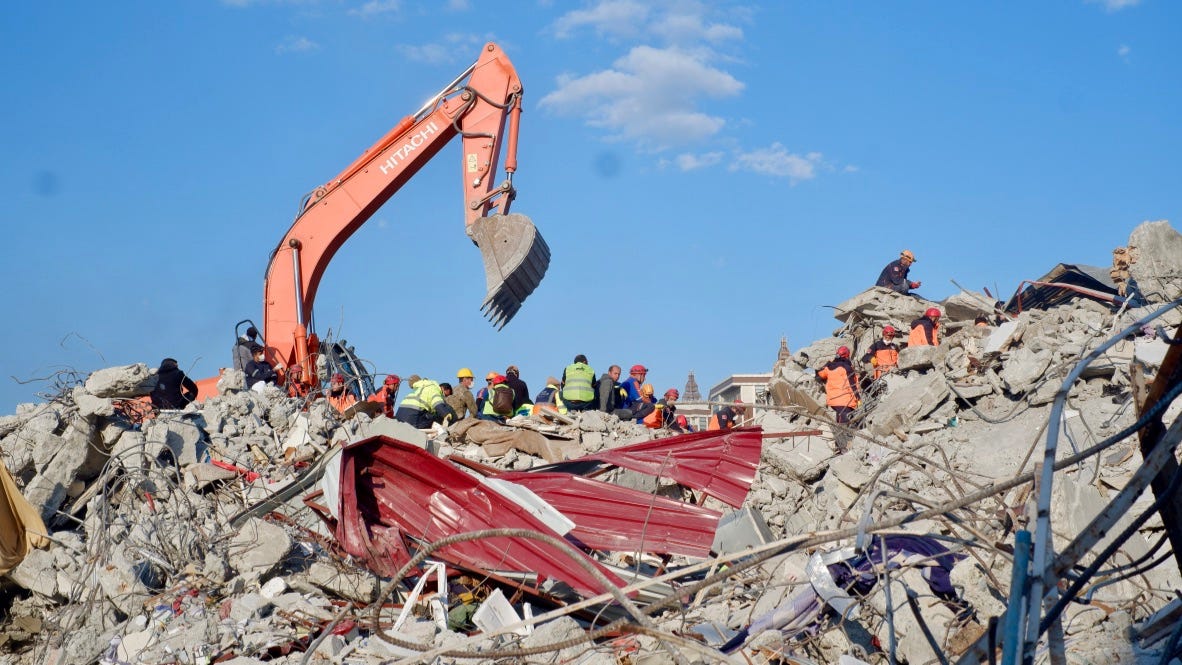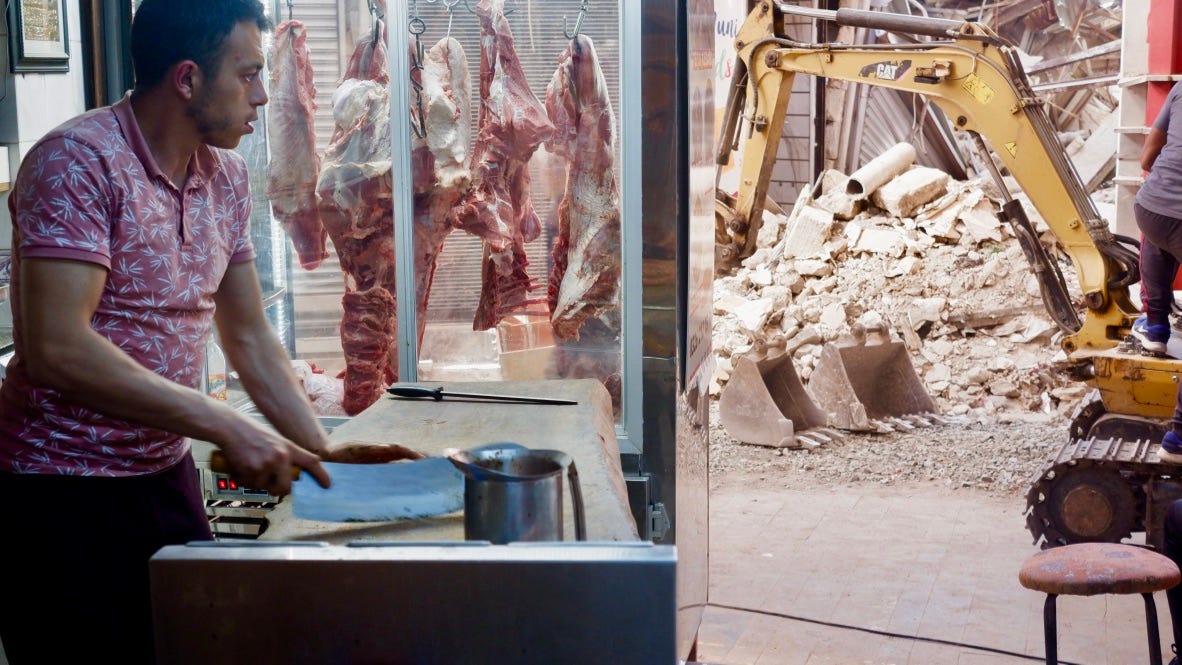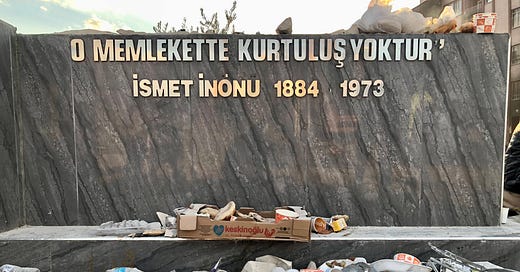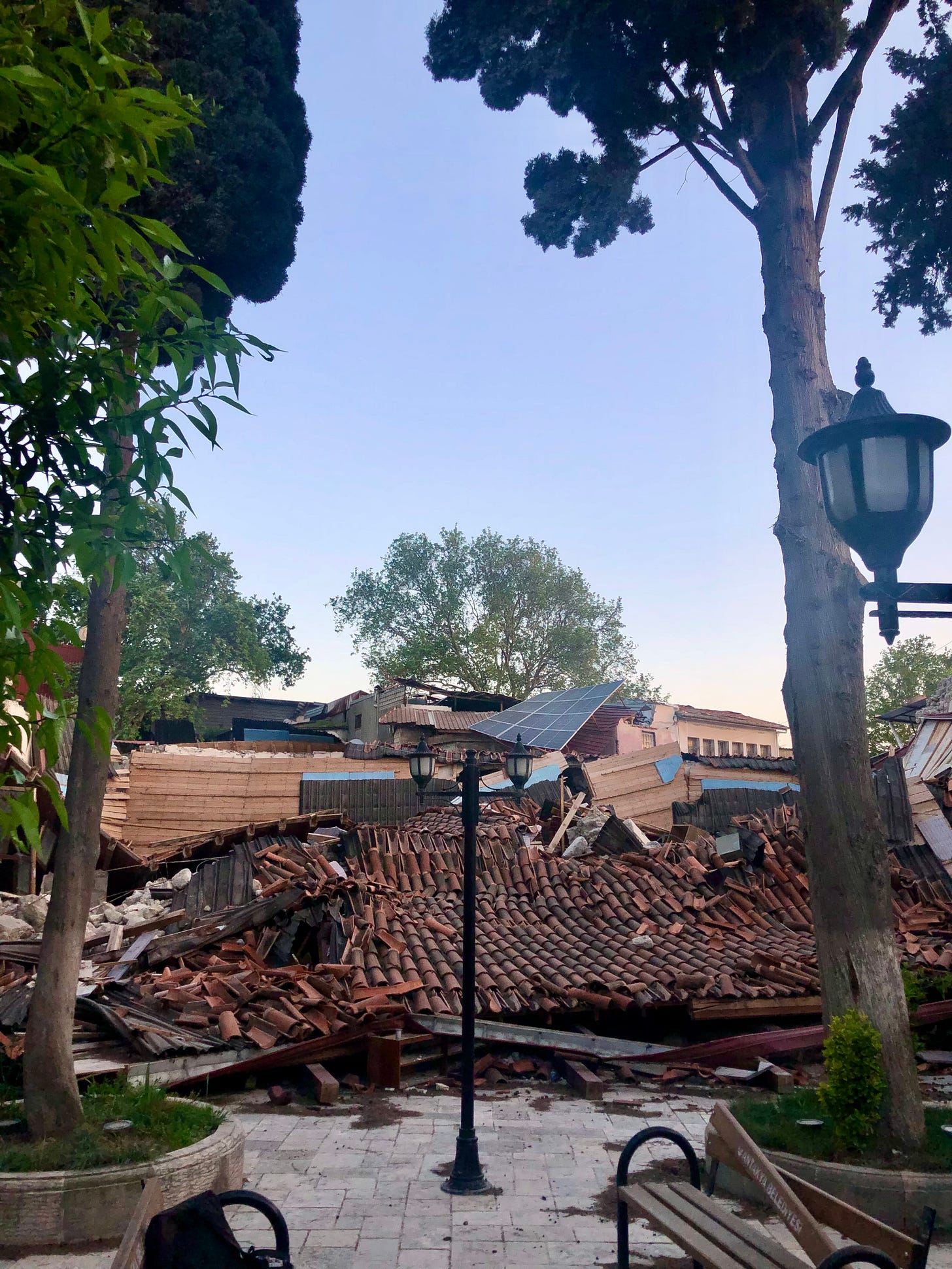A Relentless Catastrophe: Six Months After Turkey's Worst Earthquake
It's been six months since the most destructive earthquake in the history of modern Turkey struck the south of the country, and in the hottest days of summer, there is an ongoing humanitarian crisis.
I took the above photo on February 10 in the southern Mediterranean city of İskenderun. It is of a damaged statue of İsmet İnönü, the second president of the Turkish republic. It once featured an iconic quote from İnönü: “So long as the honorable people of a country are not as brave as the dishonorable people, there is no salvation in that country.”
During the earthquake, most of the quote crumbled to the ground, so what you see in the photo above reads “there is no salvation in that country.” It caught my eye instantly as I made my way through a part of central İskenderun that experienced widespread destruction. It is a painfully appropriate metaphor for the greed and negligence of the contractors and authorities that enabled the construction of buildings throughout the region that were not built to legal standards and certainly not reinforced to withstand a serious earthquake. So many collapsed as if they were made from cardboard, others looked like they had been shelled for weeks by combatants.

Six months later, two rounds of elections and a deepening economic crisis have forced most of the aftermath of the earthquake off the news agenda. But there still remains an ongoing humanitarian crisis, the primary factors of which are succinctly summarized in this post by Turkey Recap. During the hottest days of the year, people in the province of Hatay, which was hit the worst by the earthquake, are still having trouble accessing clean water. In the middle of July, residents of Hatay’s Defne district held a protest in front of the local waterworks authority. “The earthquake didn’t kill us, but thirst will,” they chanted.
39,000 women in the region are expected to give birth in the upcoming weeks, and many lack sufficient access to toilets and hygiene products, according to a recent report from Turkey’s Doctors of the World Association. The association emphasized that the asbestos that has emanated from the rubble still poses a major health risk. Furthermore, they say that there is still is the possibility of the outbreak of typhoid fever, cholera and tuberculosis among people living in tents and containers.
As I write this from my apartment in Istanbul, where every day for years the threat of an earthquake that is expected to strike Turkey’s largest city at some point in the near future looms in my consciousness, I grow frustrated by the dismal shortage of resources that journalists are able to access. The expenses from three trips and three and a half weeks reporting there exceeded the money I made from the stories I published. I applied for a grant so I could return to the region, as there are innumerable important stories to be told, not only about the humanitarian crisis but the resilience of the people in the region, such as the small business owners of Uzun Çarşı, Antakya’s historic bazaar, who have reopened their shops despite the bazaar being heavily damaged.

However, as interest from international news outlets in the post-earthquake catastrophe has faded, my grant application was rejected, so I won’t be able to return for the time being. But large parts of my days are spent thinking about the region, its cities, its people, and the indescribable pain and destruction I witnessed. That will stay with me regardless of where I am.
The purpose of this post was reiterate that Turkey’s worst natural disaster continues to cause immense suffering in a large part of the country. This is a humanitarian crisis with no end in sight. Those who are able to are encouraged to donate to assist relief efforts on the ground. While everyone may not to be able to help, it is important to not forget.
All photos by the author.






I wish you were able to be there to report and capture stories. I’m sorry the grant was rejected. Be safe and keep up the good work of continuing to talk about the catastrophe - even when it has left the attention of western media.